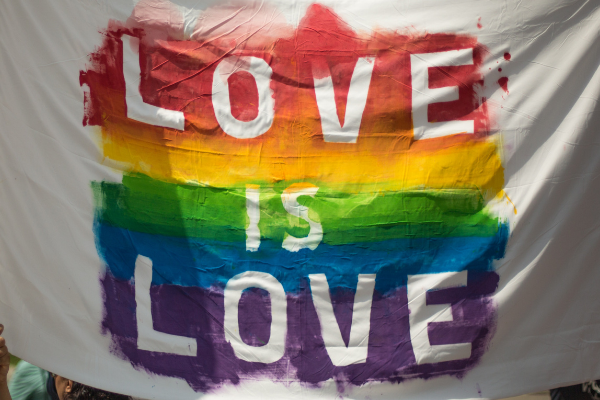While states like Texas and Idaho are criminalizing parents for empowering their children’s self-determination around their gender, Florida is framing their LGBTQ-antagonistic policies with a focus on “parental rights in education,” as the nicknamed “Don’t Say Gay” bill is officially titled. Florida’s pending policy centers on parental rights to determine what’s best for their child, and centralize parental authority in education. Shortly after a Supreme Court ruling set protections for sexual and gender minorities under Title VII and Title IX, this policy emerges as a way to limit LGBTQ+ civil rights using parental authority over minors at a terrible cost.
Aside from disempowering institutions of education for being a refuge for sexual and gender minorities, the policy will radically erase key aspects of Florida’s history such as the largest documented mass shooting that targeted Orlando, Florida’s LGBTQ+ community, the Pulse nightclub shooting of 2016. While memorializing the dancers and the legacy of national support that the devastating event inspired was no question in 2016, this new Florida law minimizes that community-building potential, not to mention suppresses talking about exploring gender expression and romantic attractions.
When I started living honestly as a queer woman of color in my twenties, I did feel empowered by the visibility of lesbian educators in high school. Their presence modeled balancing advocating for students with building community and family. As a teacher, when I was out to high school students I worked with over the years, I unintentionally became a refuge for students to talk about their struggles. As an out college professor, I intellectually and politically collaborate with my students, often connecting them to scholars that document the psycho-social toll of the isolation and stigmatization of their lived truth. Because of the toll of anti-LGBTQ+ discrimination, young people feel discouraged about their potential in education. Invisibilizing themselves and creating a lack of access to coming of age stories that reflect theirs discourages their trust in education.
Educators, health care workers, and policy advocates document evidence regarding the higher rates of suicide, houselessness, and sex work among youth members of the LGBTQ+ community. The inability to talk about bullying, isolation, familial lack of support will affect youth negatively, especially in a state with such high visibility of LGBTQ+ communities. And, because the youth with supportive families won’t be able to talk about themselves, not being able to talk about that support will further create barriers to peer community-building and affirming investment in civic engagement. As a mandated reporter, I worry how youth experiencing abuse because of their queerness will be able to find refuge. If their families’ rights over them are more important than their safety, what are we telling them?
The answer, for me, brings me back to the implications of not being able to talk about Pulse. I recall two distinct parents’ stories: Brenda Lee Marquez McCool who died because she pushed her son out of the way of the shooter and a father who left his son unclaimed after the shooting. McCool’s son, who survived that night, said his mom was the mom everyone wanted. Media covered the bittersweet story, a testament to the power of a mom’s affirming love. The news did not name the victim or the father who refused to claim him, speaking to the power of what, in light of the attacks against the LGBTQ+ community, history wants to name.
Reading this policy, I wonder how children of same-sex couples will be expected to avoid talking about their parents. I also wonder what this means for educators in same-sex relationships. How much more will they have to return to the closet to protect the rights of other families? How does this policy measure up in light of the protections we were supposed to get with Title IX? As much as time will tell, I’m left wondering why people murdering members of our community can be visible, all the while every other aspect of who we are cannot.

